Europe Goes Local will have its yearly in conference in spring 2025 in Prague, Czech Republic. We are looking for two facilitators and a rapporteur to support the event as part of the implementing team.
The specific focus of the 2025 EGL event as it was agreed by the EGL Advisory Board:
Target group
Municipal officials, decision-makers and local youth work providers, umbrella organizations.
To apply, please, read the calls:
Deadline to apply: 15 August for both calls.
During its meeting on 13 and 14 May, the EU Council of Youth Ministers approved a resolution addressing the role of youth work in supporting young people to become more autonomous within new realities. The resolution calls on member states, the Commission and relevant stakeholders to support the development and practice of quality youth work and youth work policy at EU, national and local levels, including through comprehensive youth work policies, bottom-up approaches, training of youth workers and by ensuring enabling environments and equal access to youth work for all young people.
Did you know that … this Council resolution is the outcome of the work of us all?
The Belgian Presidency of the Council of the European Union (1/1/2024 – 30/6/2024) hosted the European conference ‘Local youth work and democracy’, with the aim of contributing to the goals of the Presidency in the youth and youth work policy area. The event took place from 20 until 23 February 2024 in Brussels.
The main thematic objective of the conference was to discuss the role of local youth work in enhancing youth engagement and participation in local communities. This event built on the synergies deriving from the Strategic National Agency Cooperation projects Europe Goes Local (EGL), coordinated by JINT vzw and Democracy Reloading (DemRel), coordinated by BIJ – the National Agencies of Erasmus+ Youth for the Flemish and French communities of Belgium. You can read the final report here.
The Belgian Presidency kept a placeholder in their draft resolution, to integrate the
outcomes of the conference. Therefore, the conference, its participants and, more widely, the members of the Europe Goes Local-network have actively contributed to this important resolution. So thank you!
During the Belgian Presidency four enthusiastic young people are given the chance to bring the complex concept of the Belgian Presidency of the Council of the EU closer to other young people. Through their writing, they are voicing their opinions about Europe and are free to write without any intervenience or political agenda.
The European Youth Editors will also report on the 5 different youth events taking place during the Belgian presidency, together with their goals, and aim to provide you with a comprehensive grasp of what is happening through their own youthful lens. This includes the upcoming European Conference on Local Youth Work and Democracy, co-organised by Europe Goes Local.
Find out more about these 4 young people and their written work on the EUyouth2024-website. We recommend you to have a look at this story about youth work, through the eyes of young person Jaimie.
Our project coordinator Judit Balogh talked about Europe Goes Local on the podcast Gems Of Youth Work! She explained what EGL does, how to strengthen youth work, the role municipalities can play in that and how to establish good cooperation with them, and much more.
You can listen to the podcast series here:
Check out the other episodes as well! There are a lot of interesting episodes about different aspects of youth work.
You can find more info about Gems Of Youth Work here: https://shokkin.org/gems-of-youth-work/
EGL coordinator Judit Balogh presented at the TCA Meeting “Roads to Recognition of Youth Work” on the 7th of December. She introduced Europe Goes Local (EGL), the European Charter on Local Youth Work, and our new intranet WorkVivo. This consultancy and brainstorming event about creating new youth work policy took place in Ioannina, Greece.
The second day of this TCA meeting was about youth work at the local, national, and European level. Judit called in through Zoom to join the participants online. She introduced EGL in general, and went deeper into the Changemakers Kit and the European Charter on Local Youth Work.
Judit explained how the youth workers can use the Charter to reflect on their local realities and how the Charter can support creating policies and strategies for youth work and help recognition. She also showed the Changemakers Kit. This online toolkit guides municipalities and local organizations in starting a quality development journey, assessing the quality of youth work, creating dialogue with the different stakeholders and making an action plan together. Furthermore, Judit also told the participants about EGL’s new intranet. This will become an online platform and community building tool to bring together all actors involved in EGL.
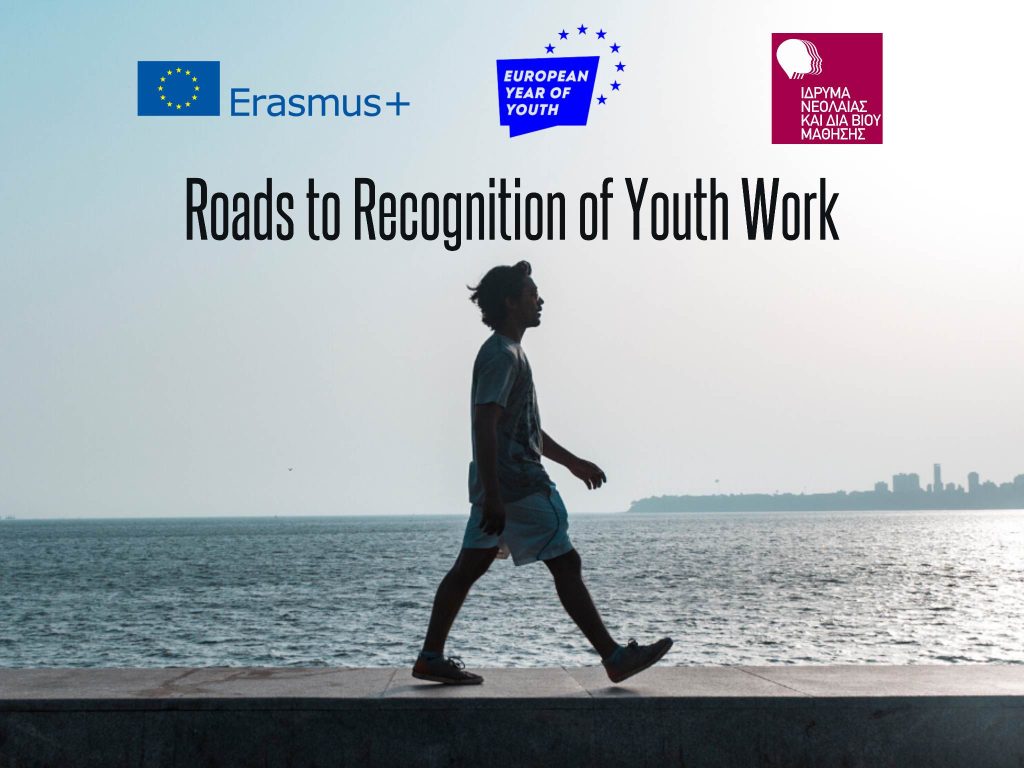
Around 18 youth workers and representatives of Association of Youth Workers from Greece and Europe joined. They’ve discussed the formal and political recognition of youth work. Hellenic Ministry of Education and Religious Affairs and the Hellenic Association of Youth Workers cooperated to organise this activity.
You can find more information here.
for the 5th European conference of the Europe Goes Local project
JINT vzw is looking for two facilitator who will be part of a team that will take care of the overall moderation and facilitation of the 5th European conference of the project called “Europe goes local – Supporting youth work on municipal level” .
Parameters of the Conference
Date: 23-25 May 2023
Venue: Stockholm, Sweden
Number of participants: ~150 pax
The specific focus of the 5th EGL event as it was agreed by the EGL Steering Group
Submitting offers
Please, send your proposal via e-mail to the project coordinator, Judit Balogh (judit.balogh@jint.be) the 30th of November 2022.
More information: Call for facilitators
Europe Goes Local contributed to the European Week of Regions and Cities via the webinar “YOUTH PARTICIPATION – How to foster youth participation in local communities?” on the 25th of October.
There were around 50 participants at the webinar from all over Europe. They were representing local and regional public authorities, youth organisations and other CSO organisations, public institutions, and funding programmes from Slovenia, Spain, France, Italy, Croatia, Romania, Finland, Czeck Republic and Belgium.
The first half of the event was a panel discussion “Youth participation, why should we care?”. Three organisations, including Europe Goes Local (EGL), presented their good practices financed by different EU funding.
Paloma Verdú from Altea (Spain) told the participants about several initiatives they have with young people of different countries. They created a network and found partners in other projects, NGO’s, municipalities, … One of their projects is a volunteering program for young people in different countries. They also get volunteers from different countries who come work with them. In another initiative, they train young people to become a leader by offering to lead a group in a youth mobility project. They also offer traineeships. In all these initiatives, young people learn through non-formal education. The young people also get opportunities to participate in youth exchanges in Europe.
Tomaž Vencelj, mayor of the Municipality of Idrija (Slovenia), introduced the second good practice Tools Of Participation. This project aimed to enable young people to become more active in politics and civil society. They worked together with 12 regions and they created action plans. The project took place from 2014 until 2018, but the municipality continues to follow the result of the project. Since the municipality was involved in this project, they still try to implement its goals today as well.
Finally, Judit Balogh presented Europe Goes Local. She explained that EGL was started in 2016 as an initiative of Erasmus+ National Agencies. At the start of the project, there were 9 countries part of the project. Now there are 35 countries, including neighbouring countries from Eastern Europe, the Caucasus, and Western Balkan, and more than 200 municipalities from all over Europe that are part of Europe Goes Local. The starting point is to help municipalities have quality youth work and to promote European opportunities. EGL wants to show that European funding can help a lot to make changes at the local level. Furthermore, she talked about EGL’s activities and the European Charter of Local Youthwork.
During the second half of the webinar, the participants were divided in smaller groups. Participants could talk in each group about their organisations, and what they’re hoping to achieve. In each group, experts were present to present the participants opportunities that could help them achieve their goals.
The different groups talked about different kinds of activities they’ve done to implement youth participation, like:
They also talked about future ideas, like:
This event was a cross-sectoral cooperation, as it wasn’t organised by the youth sector or the Erasmus+ circle, but by the EU fund programme Citizens, Equality, Rights and Values (CERV) of Slovenia. However, both CERV and E+ ESC offer mobility activities for young people. Through this event, Europe Goes Local made a bridge with CERV, another EU programme that also targets municipalities.
This webinar was organised by the CERV National Contact Point of Slovenia. CERV is the new Citizens, Equality, Rights and Values programme that was launched in 2021. This EU fund seeks to promote and protect rights and values.
“The CERV programme seeks to support and develop open, rights-based, democratic, equal and inclusive societies based on the rule of law. That includes a vibrant and empowered civil society, encouraging people’s democratic, civic and social participation and cultivating the rich diversity of European society, based on our common values, history and memory.”
You can also find the report by CERV here.
Facebook from the CERV international page
Facebook from the Slovenian national page
Linkedin from the Slovenian national page
Join the conference “Youth in Urban Space – Developments pre and post Corona, how municipalities and youth work could deal with them” on the 23th of January in Vienna (Austria) organised by Verein Wiener Jugendzentren.
This conference will present and discuss the results of this partnership among four major European cities on young people and youth work in public urban space, carried out by practitioners with researchers’ support. The conference will include policy and practise recommendations.
Several dozen youth workers researched during almost two years questions of public space in big cities concerning its usability for youth. Furthermore, they researched how this has changed over time, and how those four cities could adapt open youth work. The University for Continuing Education in Krems, Austria, was a leading research partner. Of course, this project also dealt with the effects of the Covid 19 pandemic, even though it had originally been planned before that.
The researchers used both quantitative and qualitative methods and interviewed more than 2000 youth and more than 400 youth workers. Some of the methods they used were 24 one-week observation visits to gain intense insights and focus group interviews with both young people and youth workers, among others. They analysed data on both the regional and international level. Besides a study, the project will also deliver city specific brochures in the respective countries’ languages, and is producing short videos by and with youth.
The application deadline is 9 December.
You can find more info and how to apply here.
Cities of Learning is a project that aims to engage, connect and empower young people to learning, civic engagement, and careers. In July, more than 100 young people, youth workers, educators, policy and decisionmakers of the forum created 20 policy recommendations that they believe are vital and must be addressed in the next 10 years. Photographer Bennet Rietdorf made a photo coverage of the day.
All these policy recommendations of Cities of Learning fall under five priority topics:
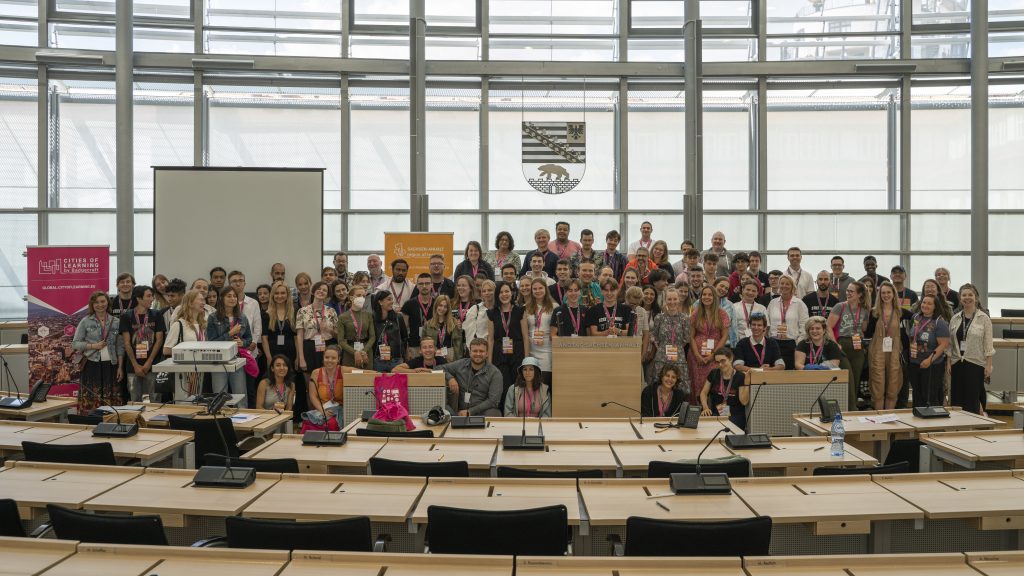
These are the Cities of Learning Policy Recommendations. You can also find the document with recommendations in this pdf or read all about it on the website of Cities of Learning.
“These recommendations are numbered for the purpose of reference only and not because of any one being more important than another. We believe all our recommendations are equally important and some should even be viewed collectively.”
“These recommendations should be viewed holistically.
A.1 Schools should have at least one day of non-formal learning every month, delivered by professionals, young people or other individuals with experience in the field.
A.2 Stakeholders in formal education settings (including senior leaders, teachers, lecturers, parents, volunteers and others) should be better informed of the benefits of non-formal learning and should be connected with role models and professionals in the field.
A.3 Support and ensure more research is carried out on the impact, benefits and purpose of non-formal learning so they can be explained to stakeholders (including employers, parents, teachers, volunteers, lecturers and others) in order to promote it.
A.4 Local governments should facilitate and provide the resources for collaboration between NGOs, schools and other partners, creating a stronger and more holistic network where countries are able to work from the same baseline.”
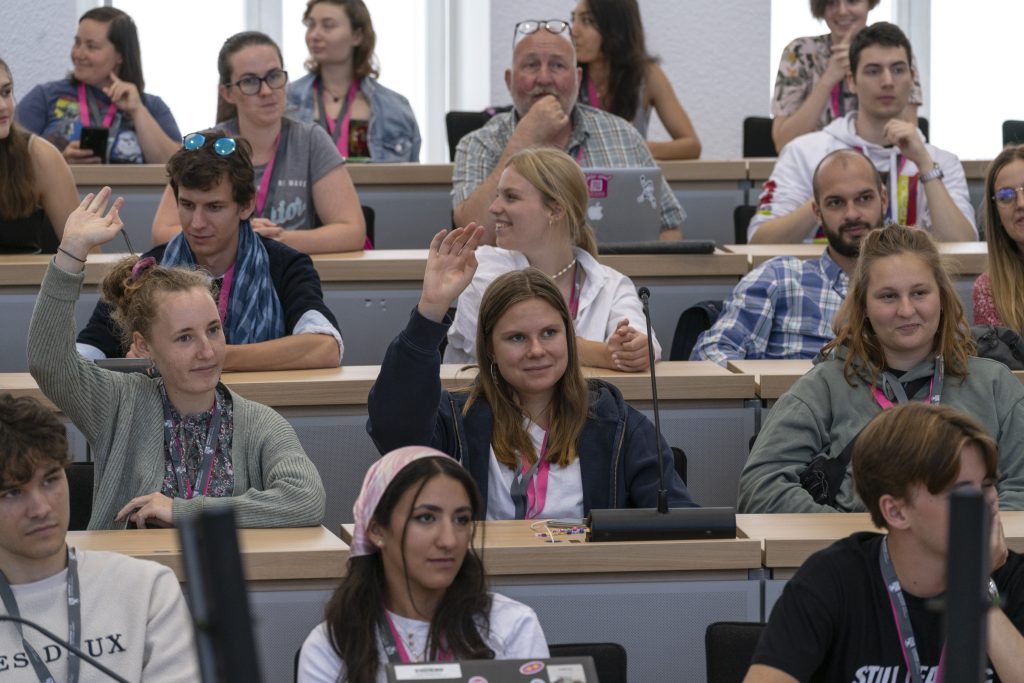
“*DEMANDS NOT RECOMMENDATIONS
B.1 Ensure people are better informed about the benefits of sustainable lifestyles, empowering them to be advocates, custodians and campaigners for the planet. B.2 Businesses must be required to publish accurate, standardised data about pollution they produce in an accessible format and this process must be regulated independently. People should be empowered to put pressure on them based on the data.
B.3 Ensure young people are better informed on the issues so they can have an active role in shaping decisions about issues that affect their futures. This should include topics such as; circular economy, public awareness, extraction of resources, consumer practices and transport.
B.4 Governments should immediately take action on practical and solvable things including implementing policies and practice such as:
“C.1 Create more specific opportunities for participation of excluded young people (inclusive events, activities, language learning for inclusion, increased mobility to gain essential life experiences).
C.2 Local and regional governments should provide the resources to enable safe spaces, projects and activities for community cohesion and cultural exchanges that are available, relevant and engaging for their communities.
C.3 Formal education settings should actively facilitate a safe place to discuss LGBTQIA+ topics, including providing staff with appropriate training that allows young people the freedom to express themselves.
C.4 Create accessible and inclusive spaces and events accessible for all young people with disabilities by providing access support such as Personal Assistants, suitable physical infrastructure, sign language interpreters and Braille.
C.5 Governments should immediately provide the resources to enable specific opportunities for the integration of young refugees and immigrants to ensure they feel part of the community.”
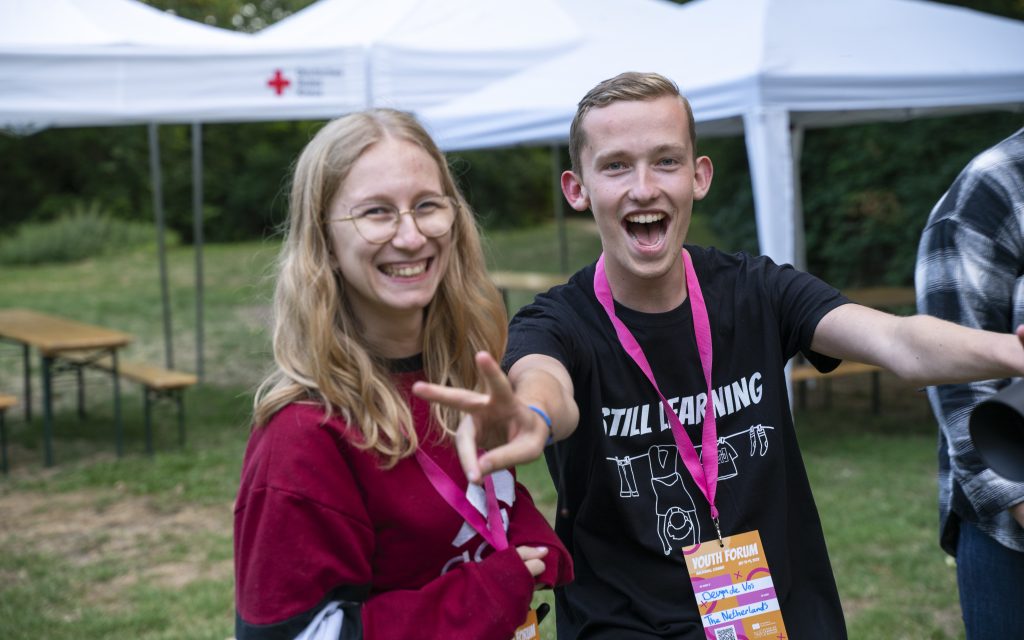
“These recommendations should be viewed holistically.
D.1 Considering and acting on young people’s opinions and interests must be a legal requirement for governments at local, regional, national and international levels. There must also be a mechanism to challenge decisions with clear timeframes and processes.
D.2 Campaigns and involvement opportunities should be designed to be engaging and appealing to young people, reaching them through the channels and locations they use and should promote political engagement.
D.3 Governments should ensure advisory youth councils and parliaments are established at local, national and international levels and provide a meaningful and impactful, creative and age appropriate democratic opportunity.
D.4 Governments at local, national and international levels should secure sustainable funding to ensure young people have the opportunity for participation projects and being part of a youth council or parliament.”
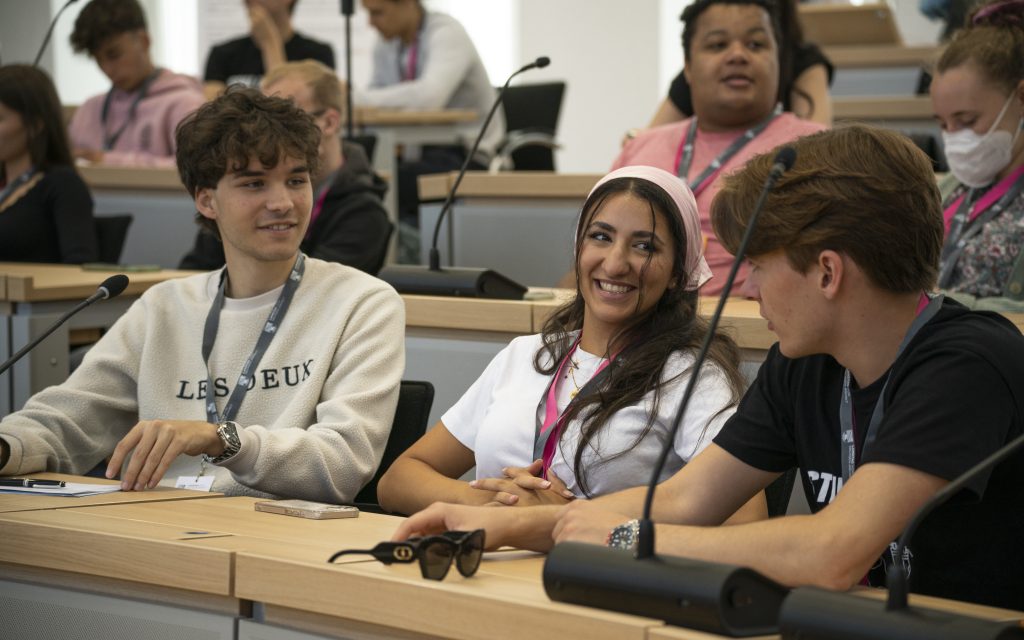
“E.1 The government should provide funds for schools to integrate the mental health and
healthy lifestyle practices in formal education by developing:
E.2 The government should develop proper recourse mechanisms for free mental health services including:
E.3 The government should recognise the importance of mental health and its visibility. They should do this by:
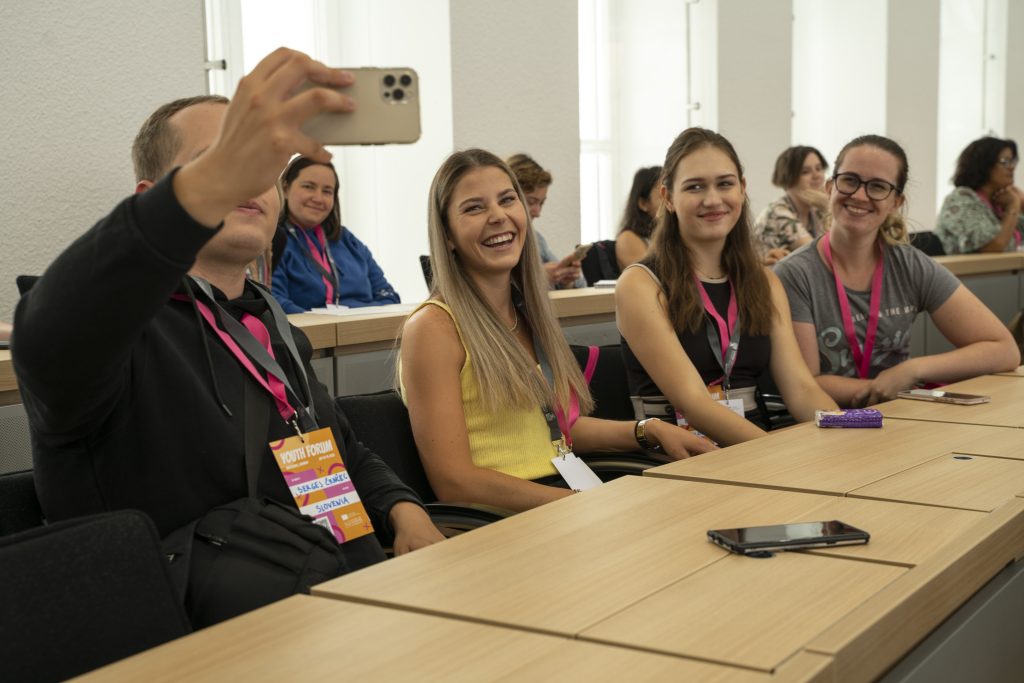
Cities of Learning is an online platform where young people can find learning opportunities. You can browse an interactive map of an area or look up events and learning opportunities based on your interests.
Find more about Cities of Learning here:
Europe Goes Local will once again join the European Week of Regions and Cities. This time, we will join the round table “Youth participation, why should we care?” during the event “YOUTH PARTICIPATION – How to foster youth participation in local communities?”. The discussion will take place on the 25th of October at 10.CET. You can register here.
The other participants will be the city council of Altea, project VOLUNTEU: Volunteering citizens as a response to social COVID19 crisis, JINT, the municipality of Idrija, and the project Governance and Youth in the Alps. Europe Goes Local has also ran joint sessions in the past.
Youth participation is key to the democratic and inclusive development of local communities. Join EU Region Week on 25th October at 10.00 CET to learn how to foster youth participation in practice.
The event “YOUTH PARTICIPATION – How to foster youth participation in local communities?” will highlight the importance of youth participation for the development of local communities, showing approaches and funding opportunities available. It’s a follow-up event of the “Getting more children and young people participating in the workings of democracy: success stories” event, organized by DG JUSTICE and EACEA during the EU Week of Regions and Cities.
The debate will be moderated by CERV točka, Slovenian national contact point of programme CERV.
For additional information please write to cerv-tocka@pina.si.
You can find the pdf with the invitation here.